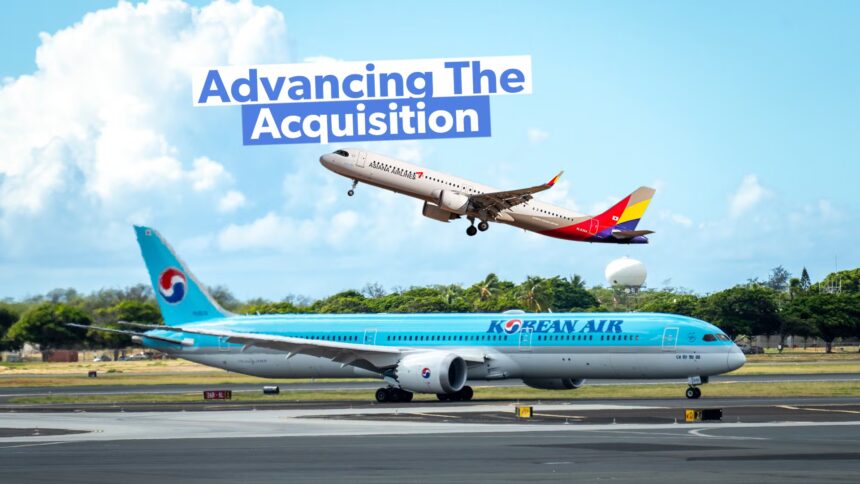Korean Air and Asiana Airlines’s merger is anticipated to improve competition, simplify operations, and revolutionize air travel in Asia and beyond.

Implications for the Aviation Industry
Asiana Airlines and Korean Air’s merger will change the aviation landscape globally.

- Increasing Market Share in Asia
The acquisition increases Korean Air’s market dominance in Asia and abroad. Korean Air is better positioned to compete with regional heavyweights like China Eastern Airlines and Japan Airlines. Incheon Airport in Seoul is anticipated to grow in importance as a worldwide hub and play a major part in international travel.
- Advantages for Travellers
The merger will have several positive effects on travellers. A larger route network will give travellers more flexibility in terms of timing and connectivity. A wider network of clients can earn and redeem points. Furthermore, by pooling resources, the airline may make investments in modernised fleets, improved lounges, and enhanced in-flight experiences.
- International Collaborations and Regulatory Obstacles
The merger’s effects on airline alliances and regulatory issues are important considerations. Asiana is a member of Star Alliance, and Korean Air is a founding member of SkyTeam. The agreement has been closely examined by competition regulators across several nations, who are worried about diminished competition and possible fare hikes. Reduced competition on some routes may help some rivals, but the merged airline will also be in a stronger position to take on leading carriers globally.
What are the long-term benefits of the merger between Korean Air and Asiana Airlines? Share your thoughts in the comment box!










This post really gave me a lot to think about.